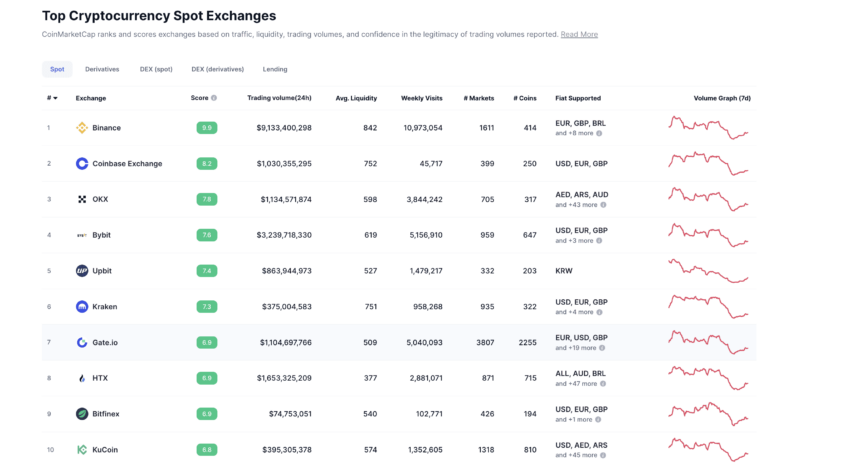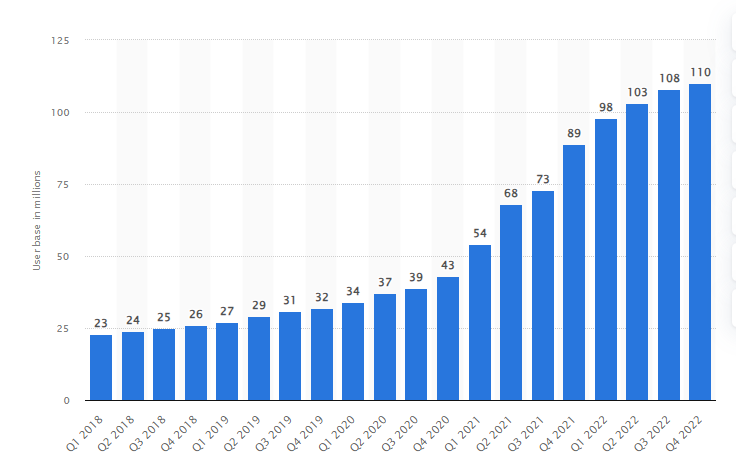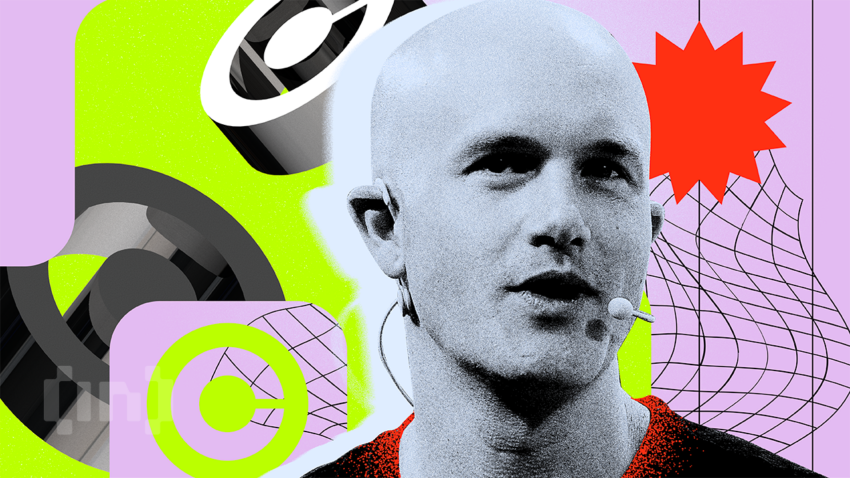Keen to know more about key figures in crypto? Meet Brian Armstrong, the influential founder and CEO of Coinbase. From once humble beginnings, Armstrong has become a titan in fintech, driving the mainstream adoption of digital currencies. This guide explores who Brian Armstrong is, his entrepreneurial journey, and his impact on the thriving crypto industry in 2025.
KEY TAKEAWAYS
•Armstrong’s early recognition of the potential for cryptocurrencies, combined with his technical and business acumen, led to the founding of Coinbase.
•Coinbase’s success can be attributed to a combination of smart marketing, a focus on user experience, and a commitment to security and regulatory compliance.
•Beyond Coinbase, Armstrong is involved in other impactful projects like ResearchHub and NewLimit.
Who is Brian Armstrong?
Brian Armstrong is the well-known founder and CEO of Coinbase, the second-largest cryptocurrency exchange in the world by trading volume, as per CoinMarketCap data. Armstrong launched the centralized exchange (CEX) with co-founder Fred Ehrsam in 2012 in San Francisco, California.

Early life and education
Armstrong was born on Jan. 25, 1983, in the San Francisco Bay Area, not far from the future tech hub of San Jose.
He attended the private, all-male Catholic school Bellarmine College Preparatory for his high school years. Academically gifted, Armstrong went on to Rice University in Houston, Texas, for his undergraduate studies. While at Rice in the early 2000s, he stood out as a student and young entrepreneur.
Armstrong graduated in 2005 with a dual bachelor’s degree in economics and computer science, allowing him to combine his technological skills with an understanding of business principles. He stayed on at Rice for a master’s in computer science, which he completed in 2006.
Brian Armstrong: Developer to startup founder
Armstrong’s entrepreneurial drive was evident from a very early age. In fact, you can trace his entrepreneurial instincts back to his Rice University days in the early 2000s. This was when he co-founded UniversityTutor.com (in 2003). This EdTech startup connected students and parents with tutors globally. He served as UniversityTutor.com’s CEO until 2012 when the business was acquired by Johnson Educational Technologies LLC.
After graduating from Rice and a brief stint overseas, Armstrong returned stateside to cut his teeth at major companies like IBM and Deloitte as a developer and consultant, respectively.
However, after reading Satoshi Nakamoto’s Bitcoin whitepaper, his career trajectory changed in 2010. And this perhaps sowed the seeds that would later lead to the birth of Coinbase and Armstrong’s other fintech endeavors. On that note, let’s quickly explore the story behind Coinbase’s origin.
The origin story of Coinbase

Armstrong became fascinated by the concept of a decentralized digital currency around the time he left Deloitte. Soon after, he joined Airbnb as a software engineer. While helping Airbnb expand into 190 countries, Armstrong witnessed firsthand the difficulties of cross-border payments and money transfers.
He then began exploring cryptocurrencies more seriously, coding in his spare time to build a platform for buying and storing Bitcoin. In 2012, now deeply committed to realizing crypto’s potential, Armstrong entered the prestigious Y Combinator startup accelerator program.
His viral Hacker News post searching for a co-founder to join Y Combinator led to a fateful partnership with Fred Ehrsam, whom Armstrong carefully vetted through over a dozen plus meetings.
With Y Combinator’s $150,000 investment in funding, the duo launched Coinbase in 2012. The company grew quickly under Armstrong’s leadership as crypto steadily gained mainstream traction, particularly during the 2017 boom. Today, Armstrong is recognized as one of the most influential leaders in making crypto accessible to the masses.
What helped Coinbase grow?
Coinbase made history in April 2021 by becoming the world’s first crypto exchange to go public. It was listed on the Nasdaq with a direct listing opening at $250 a share, which post-stock opening rise to $381. That was a good $100 above the set reference price. So how did Brian Armstrong and his team ensure such a wild growth trajectory from Coinbase’s humble beginning in their two-bedroom shared apartment?
In short, the answer would be a mix of rising crypto prices, marketing prowess, a laser-sharp brand positioning, and a verifiable track record in terms of security and compliance.
Marketing magic
Coinbase’s marketing wasn’t flashy or gimmicky. It was smart. The company was eager to tap into the idea of extending economic freedom and financial inclusivity on a global scale. It whispered alluring promises of a world without centralized control or banking barriers. And being an early mover, Coinbase found itself at a sweet spot to earn dividends from this approach.
The company was able to effectively convey that it wasn’t just operating in buying and selling digital currencies. Rather, it was about unlocking a whole new financial future — and making this future feel accessible. The company’s messaging resonated with the crowd — perhaps first with a small group of idealists and more technically-minded people. But eventually, it attracted millions of crypto enthusiasts, including many with no prior exposure to digital assets.
User experience
That said, it wasn’t just about shouting “crypto revolution”. Brian Armstrong and his team focused on user experience, creating a sleek, intuitive interface that made even the most complex crypto transactions smooth and effortless.
Branding brilliance
Coinbase didn’t just offer a platform. It promised to offer a safe haven for crypto investors and traders. Security breaches and fraudulent activities are relatively common in the crypto market, and exchanges regularly fall prey to hackers or other malicious elements. Amidst all these challenges, Coinbase managed to carve out a niche for itself as the safer and more responsible option.
Even today, as an exchange, Coinbase is not the flashiest or cheapest. However, it boasts a relatively clean record of security and regulatory compliance. This focus on trust and safety paid off by attracting mainstream investors who wouldn’t have dared touch digital assets without the reassurance of a reliable platform.
Good timing
If you look back, it would appear that Coinbase didn’t just land on the scene at the right time, but Brian Armstrong might have just predicted the incoming trend. He seemed to have sensed the barrier to adoption that crypto users would face and, therefore, invested heavily in making Coinbase the most user-friendly and transparent platform available.
As crypto prices erupted in subsequent years, traditional investors clambered to get a piece of the pie. And when they did, Coinbase was already there, ready to usher them in.

That said — Coinbase has also faced its share of challenges. For instance, its stringent compliance with KYC and AML regulations, while crucial for securing investments, sometimes meant frustratingly long user verification times. Customer support, too, took a beating, with reports of locked accounts and sluggish responses, leaving some users feeling abandoned. However, the company has notably responded by expanding its customer support team and launching live chat channels while also working to improve user experience.
Long story short — Coinbase’s story is still being written, but it’s clear that early successes were no fluke.
Other major projects by Brian Armstrong
Beyond Coinbase, Brian Armstrong is actively pursuing multiple thought-provoking projects across disciplines. Two of his most notable initiatives are ResearchHub and NewLimit.
ResearchHub, a platform Armstrong himself financed, aims to democratize the publishing and sharing of scientific knowledge. Inspired by the open-source ethos of GitHub, the platform aspires to make research papers freely available to the public.
Did you know? Brian Armstrong has been actively involved in integrating artificial intelligence (AI) with cryptocurrency through various initiatives at Coinbase. To support this vision, Coinbase has launched an AI accelerator grant program, offering financial incentives to projects that explore the intersection of AI and crypto.
Meanwhile, NewLimit tackles the proverbial $64,000 question as old as time itself — aging. Co-founded by Armstrong, this company explores the fascinating space of epigenetics, where scientists study how the environment and lifestyle can influence gene expression without altering the DNA itself. NewLimit’s mission is to use this knowledge to help improve human health and lifespan. This ambitious goal landed the company a sizable $40 million in funding in 2023.
Brian Armstrong’s stand on crypto regulation
Armstrong is not generally shy about his stance on regulation. He walks a tightrope by advocating for a clear framework while also fiercely defending the industry from what he sees as excessive government overreach.
He often alludes to the irony in America’s hesitant dance with crypto. On the one hand, stringent U.S. regulations choke growth, which potentially lends an advantage to countries like China, which have taken a more pragmatic approach. In May 2023, Armstrong wrote an op-ed highlighting how “China will benefit from enforcement of restrictive U.S. crypto policies.”
Armstrong also doesn’t hesitate to challenge the SEC’s approach toward crypto — especially after the regulator’s lawsuit against Coinbase Lend. He seems to view it as an attempt to stifle innovation and control the industry through enforcement rather than setting clear rules.
In May 2023, he openly criticized SEC Chair Gary Gensler for his seemingly hostile attitude towards the asset class.
“The SEC is a bit of an outlier here. […] There’s kind of a lone crusade, if you will, with Gary Gensler, the chair there, and he has taken a more anti-crypto view for some reason.”
— Brian Armstrong, in a conversation with the CNBC.
Armstrong’s overall view on crypto regulation extends beyond the U.S. He advocates for a greater degree of international collaboration, which he says is crucial considering crypto’s global nature.
The road ahead for Brian Armstrong and Coinbase
From coding in a spare room to leading Coinbase, a publicly traded giant, Brian Armstrong’s journey showcases his commitment to responsible crypto innovation. Armstrong is a key figure driving the future of decentralized finance. As he and Coinbase continue their ambitious path, the crypto industry is likely to follow.
Frequently asked questions
Is Brian Armstrong related to Neil Armstrong?
How much is the CEO of Coinbase worth?
What did Brian Armstrong study?
Disclaimer
In line with the Trust Project guidelines, the educational content on this website is offered in good faith and for general information purposes only. BeInCrypto prioritizes providing high-quality information, taking the time to research and create informative content for readers. While partners may reward the company with commissions for placements in articles, these commissions do not influence the unbiased, honest, and helpful content creation process. Any action taken by the reader based on this information is strictly at their own risk. Please note that our Terms and Conditions, Privacy Policy, and Disclaimers have been updated.




